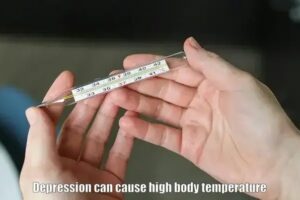The Science of Sobriety Understanding the Role of Medication-Assisted Treatment in Addiction Recovery
Addiction is a complex, chronic disorder characterized by compulsive drug seeking and use despite harmful consequences. As the scientific understanding of addiction evolves, so do the methods for treating it. One of the most promising and discussed methods is Medication-Assisted Treatment (MAT). This blog post delves into the role of MAT in addiction recovery, shedding light on its efficacy, applications, and why it’s a cornerstone of modern addiction treatment.
Understanding Medication-Assisted Treatment
Medication-Assisted Treatment combines medications with counseling and behavioral therapies to treat substance use disorders. This approach is primarily used to treat addiction to opioids such as heroin and prescription pain relievers. MAT helps in normalizing brain chemistry, blocking the euphoric effects of alcohol and opioids, relieving physiological cravings, and stabilizing body functions without the negative effects of the abused drug.
The Efficacy of MAT
Studies have shown that MAT significantly increases patient survival, increases retention in treatment, decreases illicit opiate use and other criminal activity among people with substance use disorders, and improves birth outcomes among women with substance use disorders who are pregnant. Critics often argue that MAT simply replaces one drug with another. However, the scientific community supports its use, indicating that the medications used in MAT are evidence-based treatments and do not just substitute one addiction for another.
Types of Medications Used:
Methadone: Reduces opioid cravings and withdrawal and blunts or blocks the effects of opioids.
Buprenorphine: Reduces or eliminates opioid withdrawal symptoms, including drug cravings, without producing the euphoria or dangerous side effects of the abused drugs.
Naltrexone: Blocks the euphoric and sedative effects of opioids and prevents feelings of euphoria.
Integrating MAT in Recovery Plans
Integrating MAT in recovery plans involves a personalized approach. It’s not a one-size-fits-all solution but rather a part of a comprehensive treatment plan that includes counseling and behavioral therapies. This integrated approach is crucial for addressing the needs of the whole individual to help them recover. For those looking for a comprehensive approach to recovery, drug rehab centers often provide a blend of MAT and other treatment methods tailored to the individual’s needs.
Addressing Myths and Misconceptions
Despite its effectiveness, MAT is often misunderstood. It’s crucial to address myths and educate the public about its role and benefits. For instance, MAT is often stigmatized as a “crutch” or seen as less morally sound than abstinence-only models. However, when understood and applied correctly, MAT can be a lifesaver, offering a more humane and effective approach to addiction recovery.
The Future of MAT
As research continues, new medications and methods are being developed to make MAT more effective, accessible, and tailored to individual needs. Continuous improvement in this field is crucial to address the evolving landscape of addiction and recovery.
Conclusion
Medication-Assisted Treatment represents a significant advancement in the fight against addiction. By combining medication with comprehensive therapy, MAT addresses the whole person, helping individuals to regain control over their lives. While it’s not the only path to recovery, for many, it’s a critical component of a successful long-term strategy. As we continue to understand and refine this approach, it holds the promise of helping countless individuals on their journey to recovery.
For more authoritative and credible information on MAT, consider exploring resources from the Substance Abuse and Mental Health Services Administration (SAMHSA) and the National Institute on Drug Abuse (NIDA). These resources provide valuable insights and further reading on the subject, helping to deepen understanding and support informed decisions in the context of addiction recovery.



